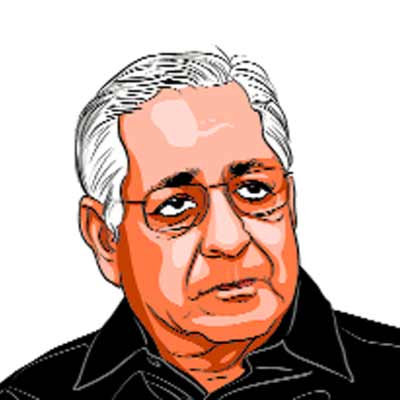Opinion Democracy in action
The Civil Liability for Nuclear Damage Bill has been passed by the Lok Sabha by an overwhelming majority.
The Civil Liability for Nuclear Damage Bill has been passed by the Lok Sabha by an overwhelming majority. The government was understandably keen to have the Bill enacted into law at an early date and preferably before President Osamas visit to India. However,the accusation that the government or our Prime Minister was under US pressure was unwarranted. The passage of the Bill was preceded by several rounds of discussion between the ruling party and the main opposition parties. The government did not,perhaps could not,adopt an arrogant attitude. It acknowledged the concerns of the Opposition and also of the civil society and was prepared to accommodate them to the maximum possible extent. The Opposition also did not take an obstinate stand but adopted a give and take approach. The government rightly relented on sticking point of the expression intent in clause 17(b),recognising the oppositions argument about the virtual impossibility of proving intent on the part of the supplier. The debates in the Lok Sabha were lively and dignified. The passage of the Bill testified to our parliamentary democracy in action. The key element was the flexible approach adopted by the government and the opposition. This tomymind is the most encouraging and remarkable aspect of the matter. The government should open channels of communication with the opposition and engage with it constructively irrespective of its numbers. There can be no political untouchability in a parliamentary democracy. It is hoped that a spirit of understanding and flexibility prevails on issues of national concern.
Hike in MP salaries
A fair principle of governance is that parties should nottake decisions in matters which concern and affect them. Our Members of Parliament apparently are oblivious of this salutary convention. With striking unanimity and lightening speed,they voted a sizeable increase in their emoluments. This has generated a feeling of cynicism and disdain in the people for our lawmakers. This feeling is accentuated in view of the findings of Ajit Phadnis,one of the five researchers drafted under the Lok Sabha internship programme,that in the composition of the 15th Lok Sabha,58 per cent MPs declared assets of over Rs.1 crore and the average assets were Rs.5.33 crore. Apparently ourMPs are not an impoverished lot. However,it is not suggested that MPs should live on love and fresh air and that there should be no increase in their salaries with the general increase in the cost of living. The objection is to the manner in which this is done whereby in effect MPs become judges in their own cause. What is essential is a proper mechanism for determining salary hikes of MPs,by setting up an independent body comprising parliamentarians,financial experts and eminent public persons. This will lend dignity and objectivity to the matter of increase in salaries of our MPs,the vaunted humble servants of the people.
Hague Conference 2010
The biennial International Law Association Conference was held at the Hague this August. The location was appropriate. The renowned Dutch lawyer Hugo Grotius laid the foundation for present-day international law based on his conviction that all societies including the international society need law. At present,the Hague is home amongst others to the International Court of Justice,the International Criminal Court and the International Criminal Tribunal for the former Yugoslavia. Promoting peace and justice has been one of the major aims of international law since its inception. The conference addressed the question about the meaning of peace and justice today. Is international law still predominantly law made by and for states? Or has the second part of the 20th century brought a new perspective on international law in which protecting people(s) has become a major objective? The conference sessions were stimulating and thought provoking especially the sessions on Feminism and International Law,Access to Justice,Climate Change and Transnational Cooperation in cases of Child Protection,Maintenance and Abduction. The last session highlighted the necessity of India ratifying the Hague Convention and the unfortunate consequences which flow from non-ratification.


